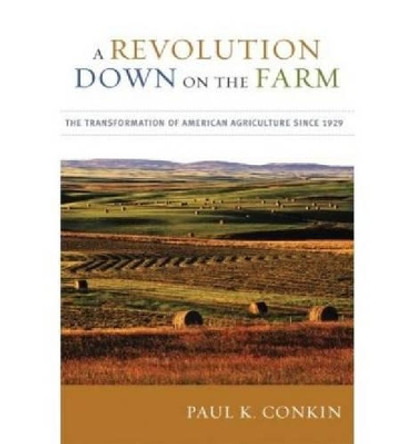An investigation into farming practices throughout a period of seismic change. WINNER of the British Agricultural History Society's 2022 Thirsk Prize WINNER of the 2022 CHOICE Outstanding Academic Title Award "This meticulously researched book gives a detailed and authoritative history of agricultural change in the second half of the twentieth century. The book skilfully weaves together the hitherto underexplored individual returns of the Farm Management Survey with oral histories of the farmers who enacted change on the ground to offer an incisive account of the complex technological, political and cultural developments which gave rise to some of the greatest changes in English farming history. It will stand as the key reference point for those with an interest in the history of agricultural change in Britain." Professor Mark Riley, University of Liverpool At the outbreak of the Second World War in 1939 British agriculture was largely powered by the muscles of men, women, and horses, and used mostly nineteenth-century technology to produce less than half of the country's temperate food. By 1985, less land and far fewer people were involved in farming, the power sources and technologies had been completely transformed, and the output of the country's agriculture had more than doubled. This is the story of the national farm, reflecting the efforts and experiences of 200,000 or so farmers and their families, together with the people they employed. But it is not the story of any individual one of them. We know too little about change at the individual farm level, although what happened varied considerably between farms and between different technologies. Based on an improbably-surviving archive of Farm Management Survey accounts, supported by oral histories from some of the farmers involved, this book explores the links between the production of new technologies, their transmission through knowledge networks, and their reception on individual farms. It contests the idea that rapid adoption of technology was inevitable, and reveals the unevenness, variability and complexity that lay beneath the smooth surface of the official statistics.
About the AuthorPAUL BRASSLEY is an Honorary University Fellow in the Centre for Rural Policy Research at the University of Exeter MICHAEL WINTER is Professor of Land Economy and Society in the Centre for Rural Policy Research at the University of Exeter. MATT LOBLEY is Professor of Rural Resource Management and Director of the Centre for Rural Policy Research at the University of Exeter. DAVID HARVEY is an Associate Professor in the Department of Archaeology and Heritage Studies, Aarhus University (Denmark), and Honorary Professor of Historical Geography, University of Exeter.
Reviews[An] excellent and coherent volume. [...] Highly recommended. -- CHOICE
This book does a wonderful job of combining historical statistics with personal recollections to create a clear and compelling case for the character of technological changes in English agriculture. [...] The authors have given us an excellent rebuttal to technological determinism, and raised a number of very important questions for other scholars to consider in their assessments of modernization. -- HISTORIA AGRARIA
The book is fascinating...for the illustration and illuminating details, both of national conditions and trends and more so from individual stories and responses. * JOURNAL OF AGRICULTURAL ECONOMICS *
This study sets the individual stories against the national statistics, and in doing so provides a framework for future work -- Nicola Verdon * Family & Community History *
Book InformationISBN 9781837651108
Author Paul BrassleyFormat Paperback
Page Count 300
Imprint Boydell & BrewerPublisher Boydell & Brewer Ltd







